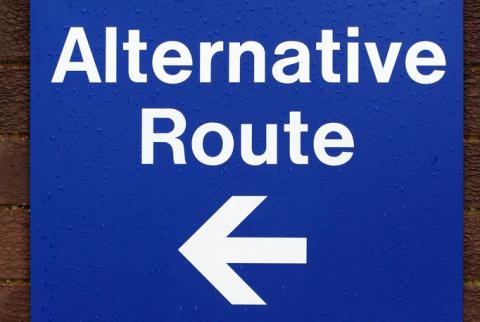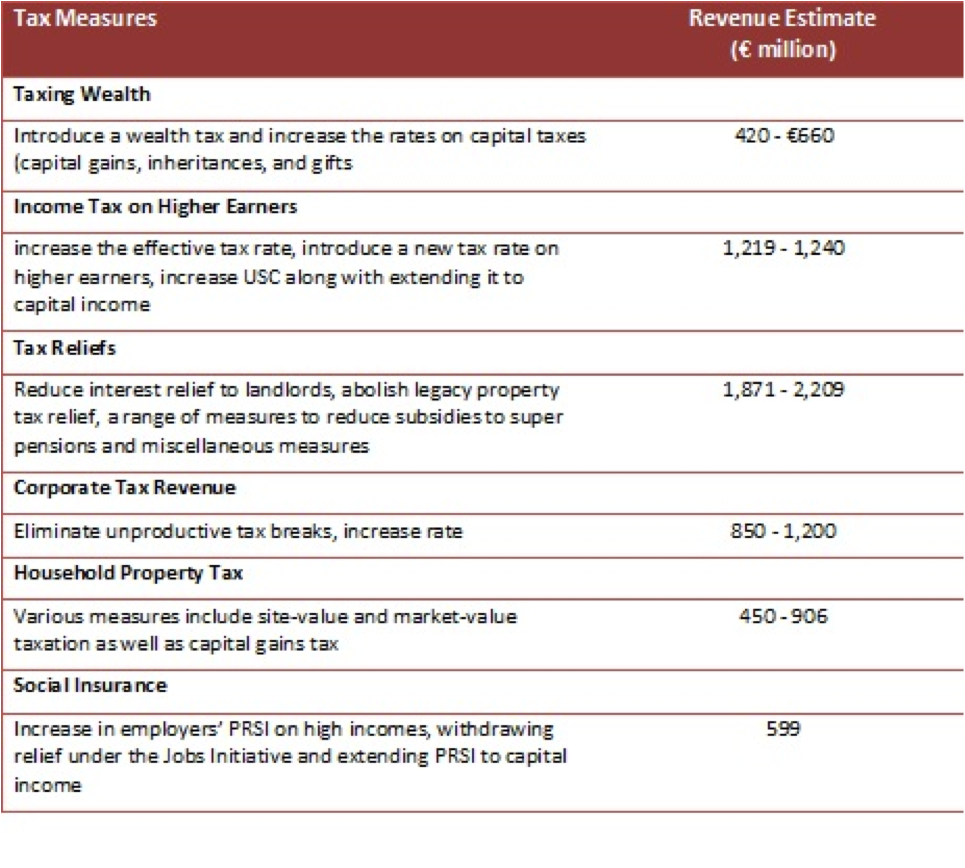Claiming the alternative

The key message from recent work by Claiming Our Future is that if the Government wants to hit low-average income groups, it is a political decision – not one based on economic or budgetary necessity. By Michael Taft.
How many times do we hear from those who criticise the critics of austerity – “Well, what’s your alternative?” That the alternative has been outlined and measured by a number of groups for years is rarely acknowledged. This time, however, it will be difficult to ignore given the recent work by Claiming our Future.
They have compiled a menu of tax measures which would largely impact on high income groups, capital, property and corporate income taken from a range of civil society groups. It shows that not only are spending cuts unnecessary, tax increases on low-average income groups are also unnecessary. The key message in the CoF document is that if the Government wants to hit low-average income groups, it is a political decision – not one based on economic or budgetary necessity.
CoF takes proposals from TASC, UNITE, Social Justice Ireland, Nevin Economic Research Instiute (NERI) and ICTU which supplied the revenue estimates – most of which has been taken from the Department of Finance (the proposals and estimates supplied by UNITE have not yet been published).
The full list can be accessed at the link above. Here is a broad breakdown.
 There are also proposals to increase DIRT and introduce a Financial Taxation Tax (though the revenue estimate of €500 million is not included by CoF in its final tally since it wouldn’t come on stream in 2013 even if the Government supported it).
There are also proposals to increase DIRT and introduce a Financial Taxation Tax (though the revenue estimate of €500 million is not included by CoF in its final tally since it wouldn’t come on stream in 2013 even if the Government supported it).
So what’s the bottom line? CoF provides three of them.
- The total for all measures would raise between €5.5 and €6.9 billion.
- The total for all measures, excluding a recurrent household property tax, would raise between €5.2 and €6.2 billion.
- The total for all measures, excluding a recurrent household property tax and a rise in the corporate tax rate, would raise between €4.7 billion and €5.4 billion.
These measures would be sufficient not only for Budget 2013 but for Budget 2014 as well.
CoF also brings together recommendations for investment, which is not only a tool of economic growth and employment but fiscal consolidation as well – since growth and employment increases tax revenue and reduces unemployment costs. Proposals from NERI, ICTU, Social Justice Ireland, TASC and UNITE all propose investment programmes ranging from €1 billion to €3 billion sourced from different funds: Government cash reserves, National Pension Reserve Fund, private funds (pension funds, etc.), Recovery Bonds, etc.
So how much better would it be? NERI, using their HERMIN model, has already measured the impact of a budget with €2.3 billion in tax increases, €400 million in spending cuts (via Croke Park savings) and a once-off investment of €500 million. They found that this set of proposals would create an extra 21,000 jobs and boost growth by an additional 1.3% – while hitting the Government’s own deficit reduction target.
All of this shows what progressives have been saying for some time – a budgetary strategy combining investment and ‘growth-friendly’ fiscal adjustments (increased taxation on high-income groups) will produce a better result than an austerity strategy.
Claiming our Future has brought together the information for a budget strategy that does not rely on spending cuts or tax increases on low-average incomes. So the next time someone asks, “What’s your alternative?” – just direct them to the work of CoF.
Image top: Nick Dimmock.
